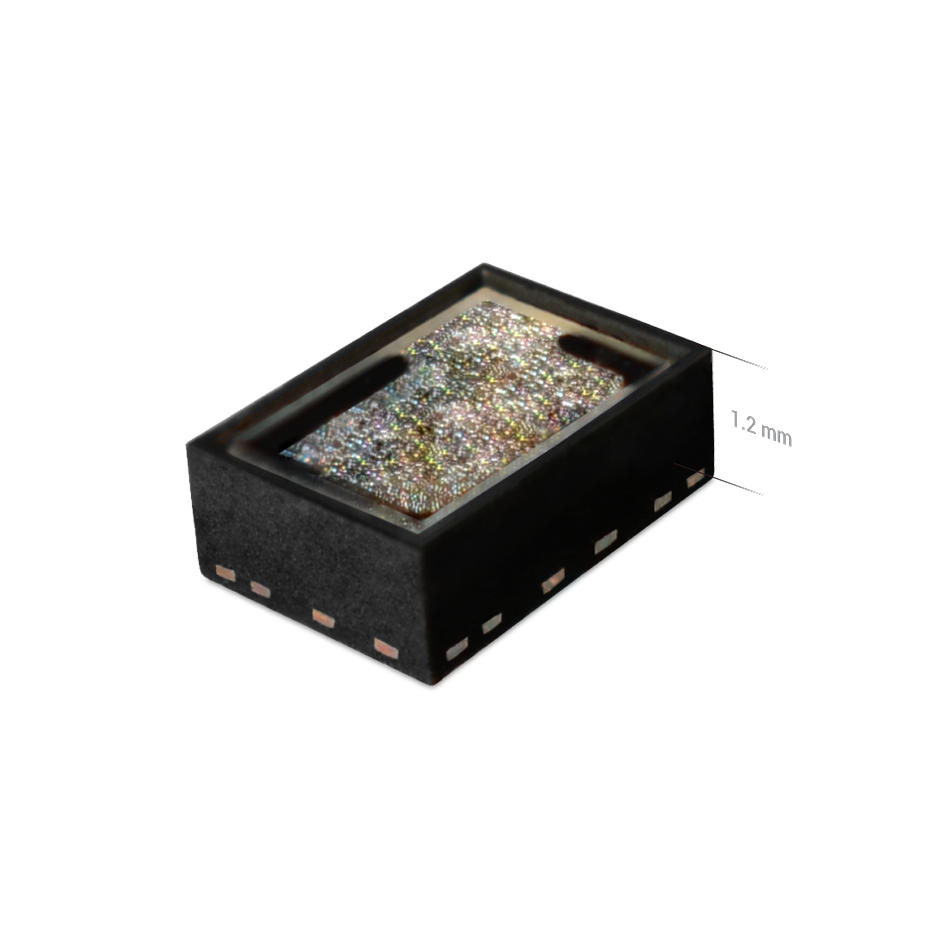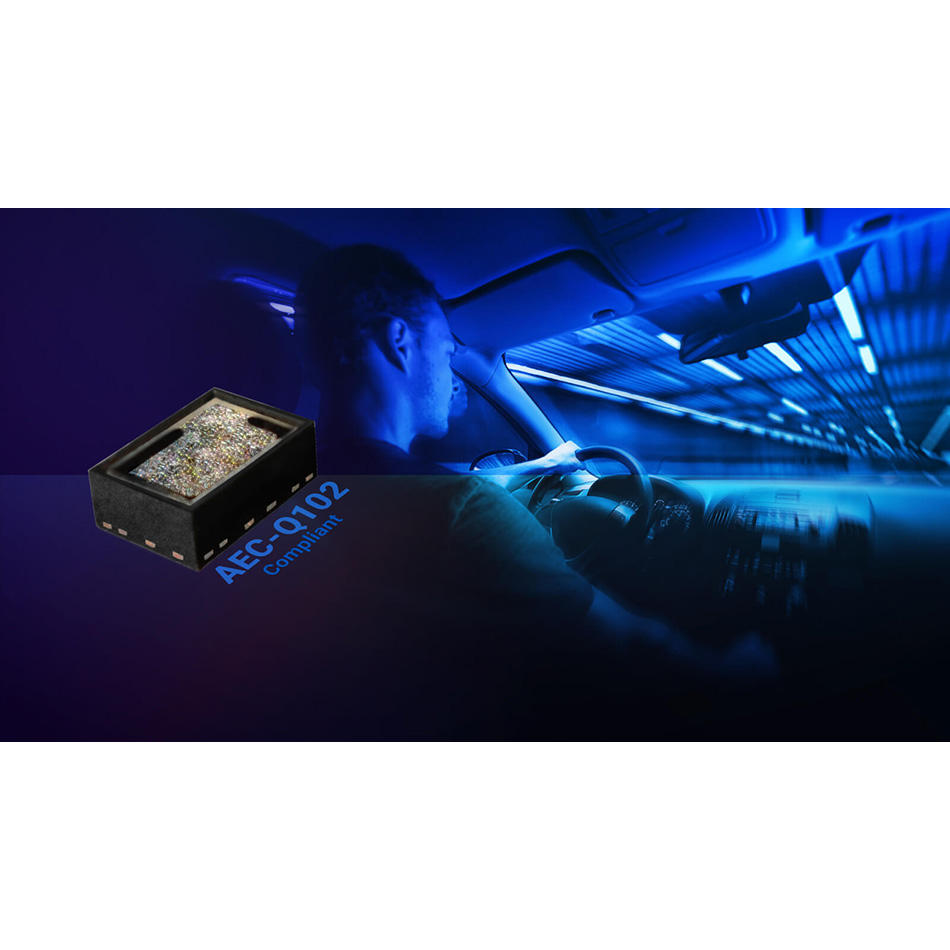Illumination Solutions for 3D Robot Vision
Coherent VCSEL-based illumination modules address the unique challenges faced in 3D vision systems for autonomous robots.
December 2, 2024 by Coherent
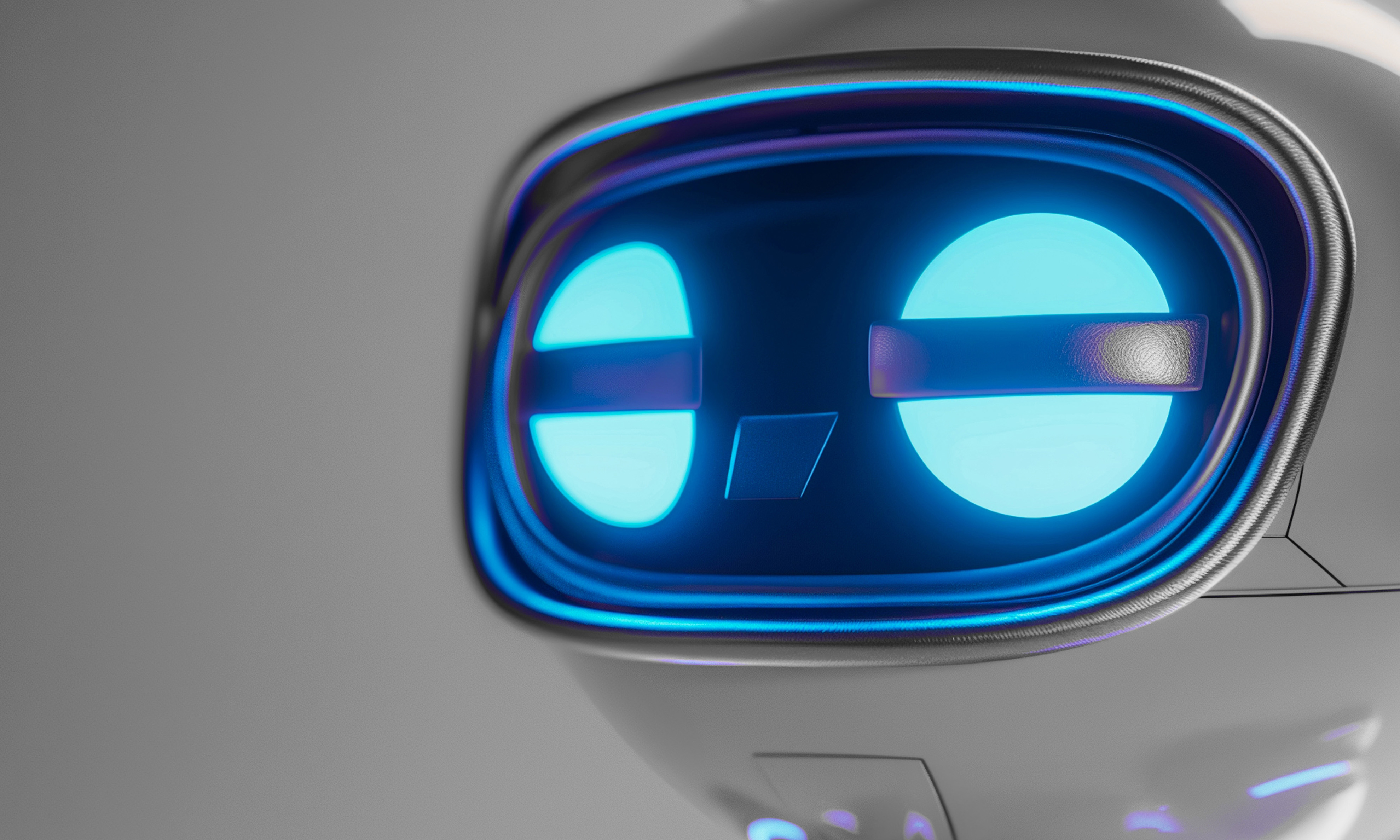
In our introduction to the fundamentals of 3D sensing technology, we discussed the core concepts and techniques that enable machines to perceive depth. In this follow-up, we’ll dive into a specific application of 3D sensing – robot vision – and learn how illumination solutions are driving advancements in this field.
The Rise of the Machines
Household robots are no longer a futuristic concept. Devices like robot vacuum cleaners, floor moppers, window cleaners, and lawn mowers have become everyday conveniences. Over time, they’ve grown smarter and more sophisticated. For example, early robot vacuum cleaners often followed random paths, but modern models use advanced sensors to map the room. They clean more efficiently by navigating obstacles and covering every area systematically.
Now, thanks to rapid progress in artificial intelligence (AI) and machine learning, an even more capable generation of robots is emerging. These robots will no longer be limited to simple tasks; they’re beginning to take on complex responsibilities like folding laundry, preparing meals, and setting the dinner table. One of the key technologies enabling this evolution is improved 3D vision.
Robot Vision: A Key to New Abilities
For robots to become more skillful and versatile, better vision systems are essential. Vision sensors enable robots to navigate through complex environments, recognize and manipulate objects, and interact safely with people. For instance, a robot that helps in the kitchen must be able to perceive depth to avoid collisions, accurately grasp items, and operate in a 3D space much like a human would. Just as humans rely on stereo vision to understand the world, robots need the same capability to perform their tasks effectively.
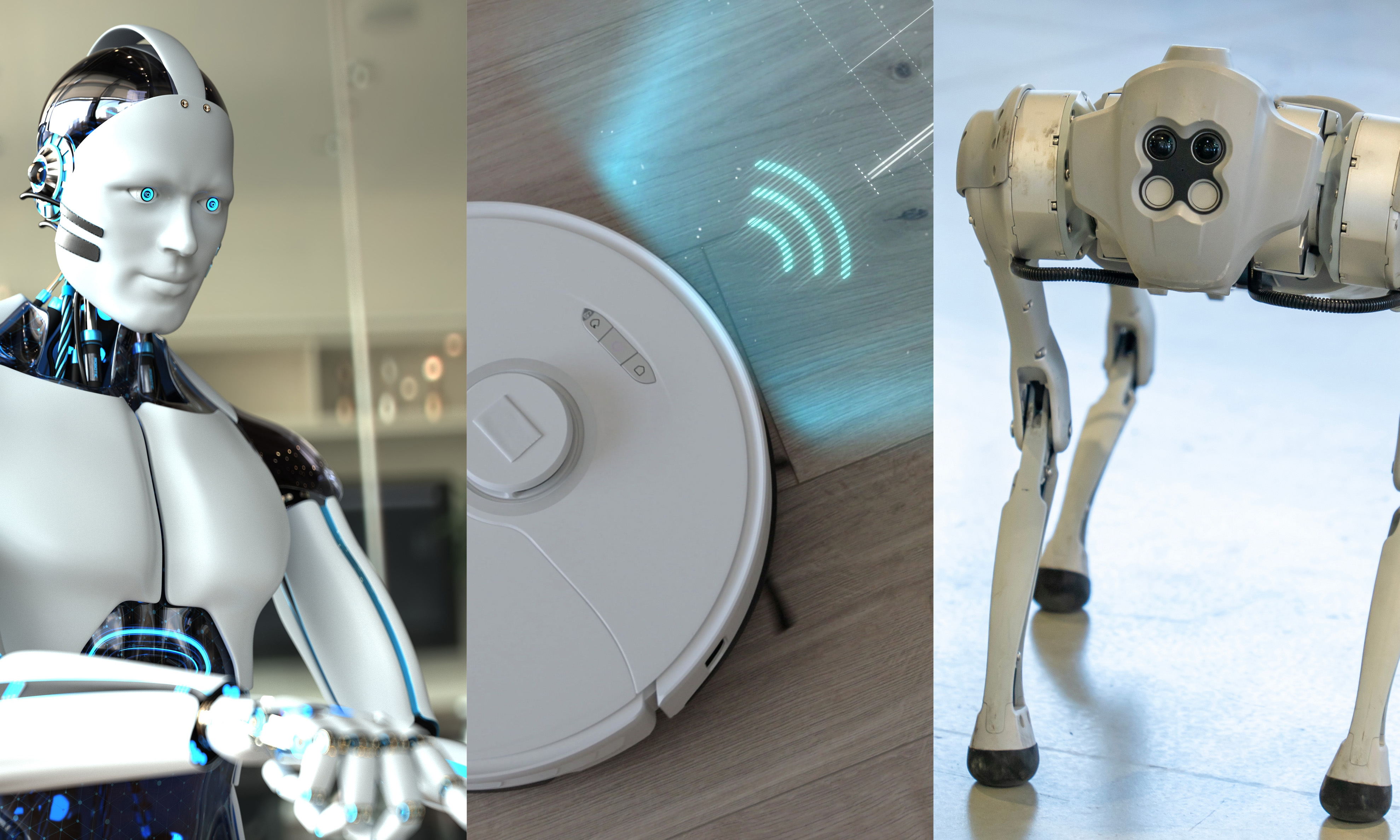
3D vision is crucial because robots must operate in a three-dimensional world – whether it’s navigating through a home, picking up objects, or interacting with humans and pets. Without the ability to perceive depth in their environment, their utility would be limited to very basic interactions.
Approaches for 3D Robot Vision
There are several ways to implement 3D vision in robotics. Stereo vision, which involves using two cameras to mimic human depth perception, is one method. However, stereo vision systems can be computationally intensive and are often limited by the lighting conditions and the texture of the objects being observed.
For this reason, many robot vision systems rely on more efficient techniques such as structured light and time-of-flight (ToF) sensing. Both of these methods utilize active illumination – typically in the infrared spectrum – to capture depth information more reliably and with fewer environmental constraints. A detailed discussion of these techniques was provided in our blog An In-Depth Look at 3D Sensing.
In brief, structured light works by projecting a pattern (such as a grid or dots) onto the scene and measuring how the pattern deforms when it strikes surfaces. It’s ideal for short-range, high-precision tasks, such as identifying small objects or fine details. In contrast, ToF technology, which measures the time it takes for light to bounce back from surfaces, is more versatile. While it may not provide the same level of detail as structured light, it can operate over both short and long distances, making it particularly well-suited for robot vision.
ToF Illumination Options
ToF systems typically work with two types of illumination: flood illumination and dot projection. Flood illumination provides a dense, uniform point cloud that captures the entire scene. However, it can sometimes suffer from lower signal-to-noise ratios and is more susceptible to multipath effects, where light bounces off multiple surfaces before reaching the sensor. This can limit its accuracy over long distances.
On the other hand, dot projectors create a sparser point cloud but offer better signal-to-noise performance and higher precision by reducing the effects of multipath interference. Dot projectors also tend to have longer range capabilities, making them more effective for larger spaces or for navigating complex environments.
The variety of possible uses for robots is quite broad. Depending on the specific application, robot developers may choose between flood illumination and dot projectors, or in some cases, combine the two. For example, using flood illumination to sense over a wide field of view, and supplementing this with a dot projector when extended range sensing is required.
It’s also worth noting that power consumption is often critical for autonomous robots since they may have to operate for long periods between recharge sessions. In this case, dot projectors may be preferred over flood illuminators because of their typically lower power consumption.
Coherent Illumination Solutions
Each robotic application has unique challenges, such as varying levels of ambient light, different viewing angles, and the need to operate effectively over a wide range of distances. For this reason, Coherent offers a range of off-the-shelf illumination modules that are ideally suited for robot vision applications. These include both flood illuminators and dot projectors, designed for seamless integration and optimal performance.
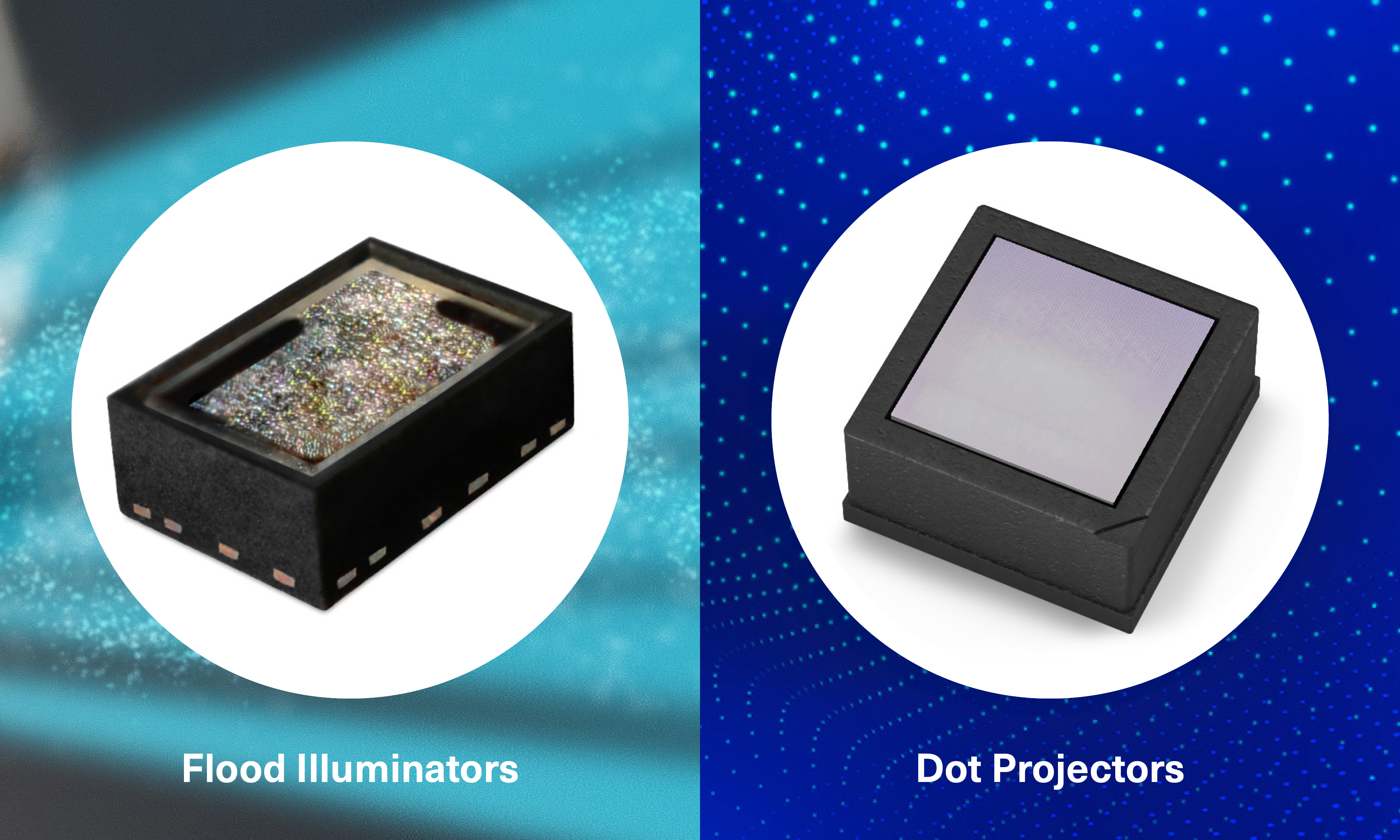
Our flood illuminators come in different power levels, ranging from 4.5 W to 11 W, and offer a range of field of view options from 60° x 45° to 140° x 110°. They are highly efficient, ensuring reliable performance even in battery-operated devices.
Our dot projectors are equally versatile, available with various configurations from 67° x 53° and 1,100 dots, to 130° x 110° degrees and 3,000 dots. They offer small spot sizes, high contrast, and excellent eye safety, making them suitable for a range of robotic applications.
All of our illumination modules, both flood illuminators and dot projectors, come in surface-mount technology (SMT) packages. This compact form factor makes them easy to integrate, and they are fully compatible with reference designs from major ToF sensor manufacturers.
Conclusion
With off-the-shelf SMT flood and dot projector modules from Coherent, it has never been easier to design customized illumination solutions for time-of-flight cameras in robot vision systems. Whether you’re developing the next generation of household robots or working on advanced applications in smart home automation, security, or mobile devices, our solutions provide the flexibility and performance you need to succeed.

